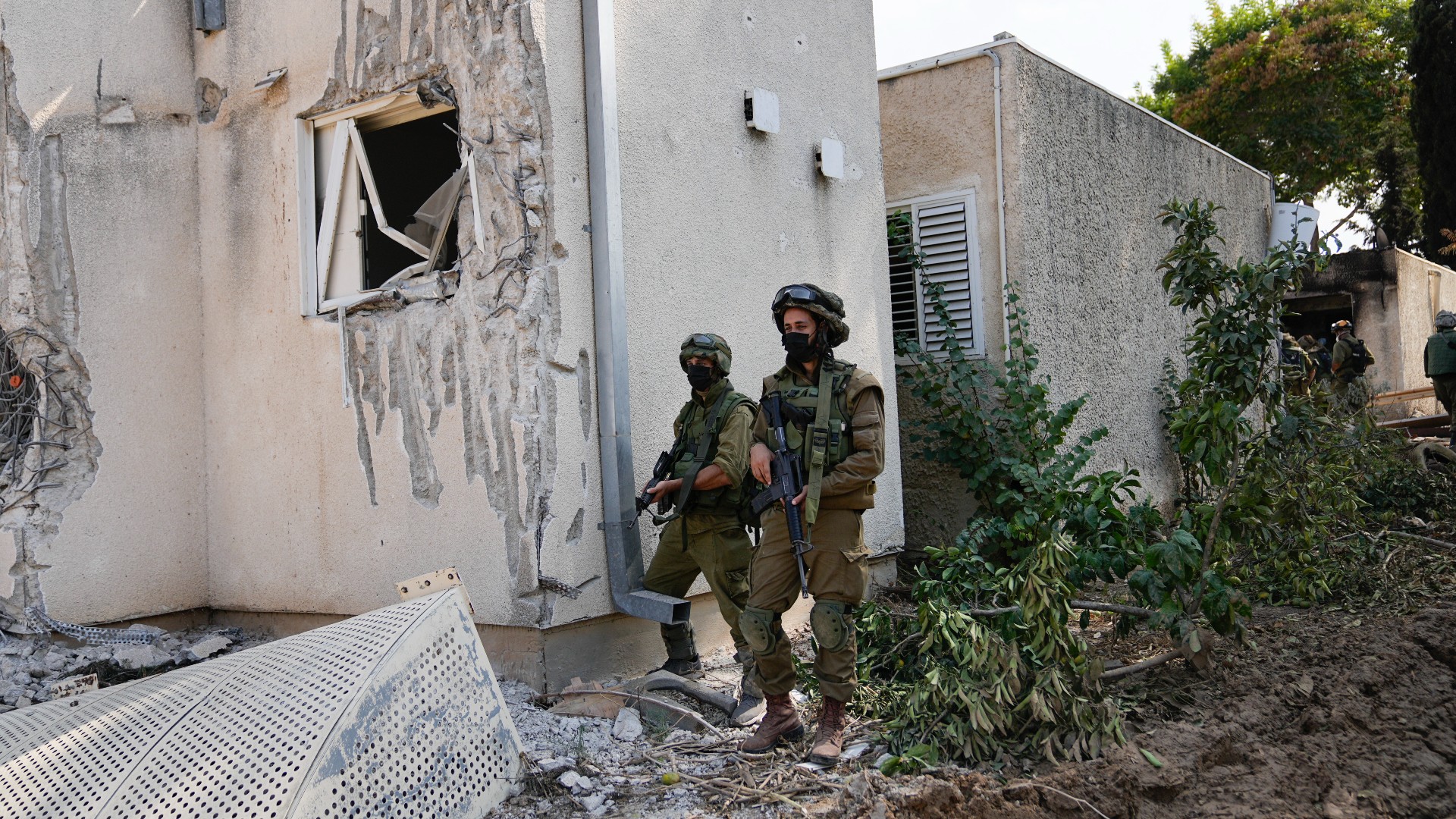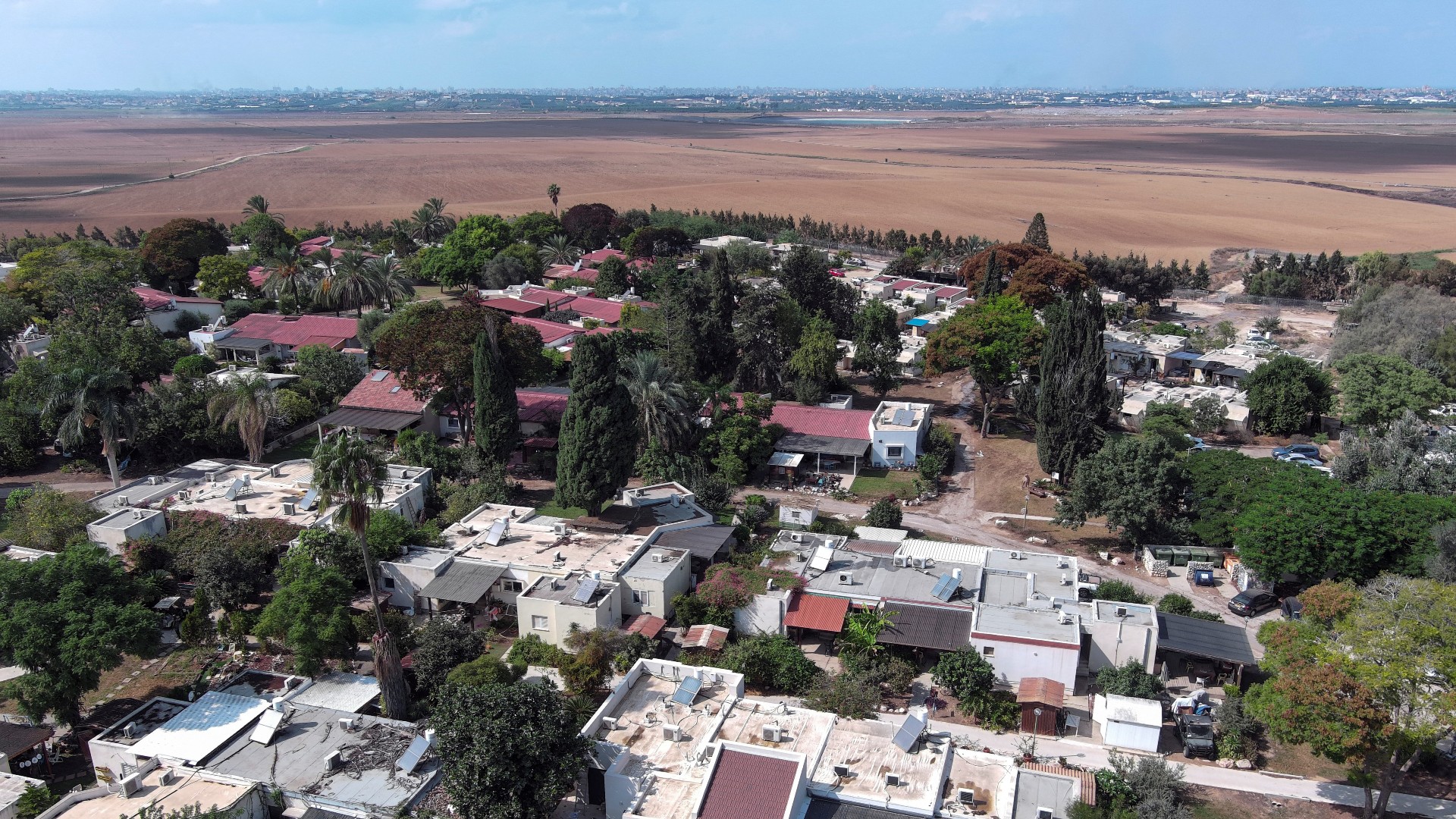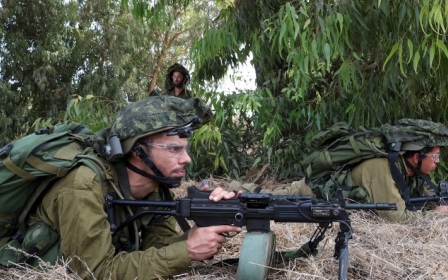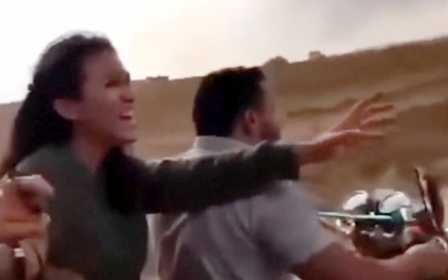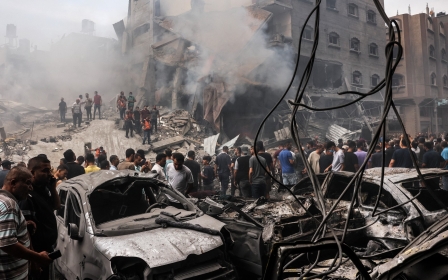Israel-Palestine war: Kibbutz resident describes the attack - ‘There is nothing left’
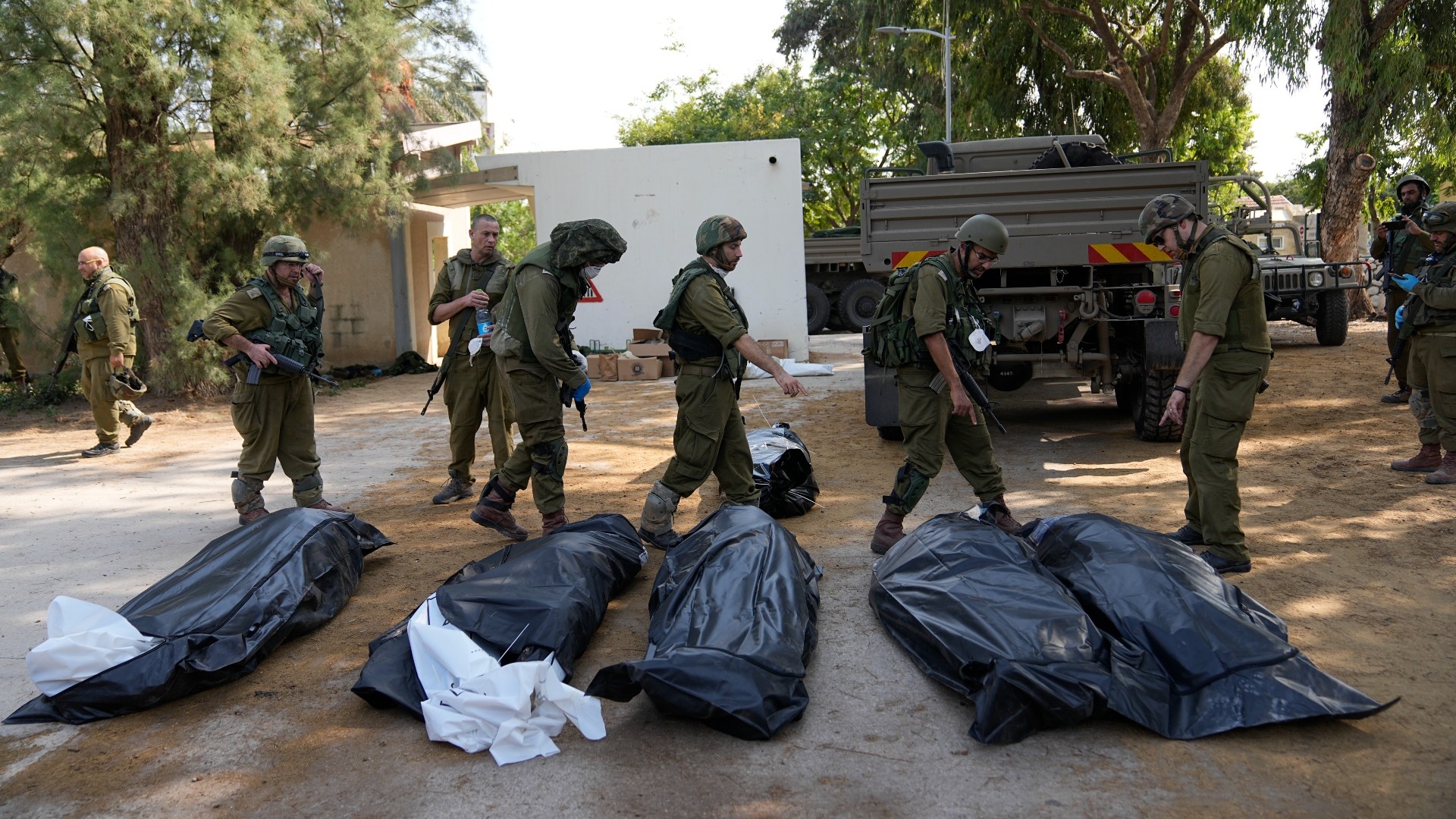
Like the rest of Israel, Naama Rotenberg spent Friday night celebrating the Jewish holiday of Sukkot. She lives in Saad, a kibbutz about 4km from the boundary that separates Israel from the Gaza Strip.
Saad is mostly populated by religious Jews like Rotenberg. It’s a place of lush lawns, towering palm trees and rows of flowerbeds outside homes.
“The next morning, my husband woke me up to the sound of explosions and red alert sirens. We went into the safe room with our four children and another friend,” she told MEE.
Hundreds of Palestinian fighters were pouring into Israel from Gaza by land, sea and air. Thousands of missiles were being fired overhead. For an hour and a half, there were non-stop sirens and the sounds of Israel’s Iron Dome air defence system shooting down rockets. Outside, they heard constant gunfire.
“I have lived in the south since 2009 and have been through many rounds of fighting. After it stopped, after an hour and a half of heavy firing, it was obviously something unusual. We understood that something serious was happening and we turned our phones on. We observe the Sabbath and normally keep our phones turned off,” Rotenberg said.
New MEE newsletter: Jerusalem Dispatch
Sign up to get the latest insights and analysis on Israel-Palestine, alongside Turkey Unpacked and other MEE newsletters
“Then we realised that something really big was happening and we got a message from the kibbutz security people to lock the house and stay in the safe room. For the entire day we were in the safe room. There were seven of us: the oldest child was a girl of 12 and the youngest a girl of five and a half.”
About 10km away, near the kibbutz of Reim, around 4,000 young Israelis at a rave were being attacked. Palestinian fighters descending on hang gliders and moving in on the roads and in the fields opened fire on the youths, killing at least 260 and capturing many.
“People running away from the rave party nearby were arriving at the kibbutz. Our house is very near the front entrance of the kibbutz where people fleeing kibbutz Kfar Aza were also arriving. They were brought into the nearby houses with our friends and neighbours,” Rotenberg said.
The survivors of the rave massacre and attack in the adjacent Kfar Aza kibbutz were gathered in one safe area. Rotenberg is a social worker, so she provided emotional support as a first responder.
Follow Middle East Eye's live coverage for the latest on the Israel-Palestine war
“The ghastly stories they were telling were like something you only hear about in the movies. Everything was quiet at the party, they said. People were dancing. And suddenly there was automatic rifle fire. At first, people didn’t understand what was happening, and then when they understood that they had to get out of there, people got into the nearest car,” Rotenberg said.
“Whoever saw a car moving nearby just got in. They fled in all directions. Whoever could get into a car was driving away. They were driving on the road and all around them, they said, Hamas fighters were firing indiscriminately. Some people ran and hid; they didn’t know where to go, because the road was full of armed men shooting.”
Rotenberg said in the confusion soldiers protecting Saad fired upon others fleeing Kfar Aza, thinking they were Hamas fighters dressed up as soldiers. The survivors arrived completely distraught, falling apart, she added.
“Our own community was in shock, but we were grateful to be alive. That was a miracle. The only thing separating us from Kfar Aza is one road, and everything on the other side was wiped out,” Rotenberg said.
“They aren’t yet publicising what exactly happened at Kfar Aza, but there’s nothing left there. I know another social worker there, her parents by some miracle survived, and she says there is nothing left, no friends and no families left.”
'Stories you would not believe'
More than 1,000 Israelis have been confirmed killed in the attack. Israeli forces only managed to push all Palestinian fighters back into Gaza on Monday, and they have been pummelling the Gaza Strip with air strikes in response. At least 830 Palestinians have been killed so far.
When the fighting subsided, one of Rotenberg’s friends went to Kfar Aza to help.
“Afterwards he told stories you would not believe. He says that people were killed without mercy, that they recovered the bodies of children, the bodies of infants, bodies of entire families. The attackers showed no mercy to anyone.”
On Sunday, the Israeli military gave some foreign journalists access to Kfar Aza, telling them, too, that families and infants had been killed.
MEE could not independently verify the claims.
Some residents of Saad are missing. Others are badly wounded.
As for Rotenberg, she’s been placed by authorities in a hotel on the Dead Sea. She managed to escape Saad on Sunday: “We saw the fighting and the extent of the destruction.”
Rotenberg’s being housed alongside other people from kibbutzim near Gaza.
“All of us feel astounded. How could they have done something like that to us? How did we know nothing about it?" she said.
“We were so sure that we are strong, can do anything, are ready for anything. This really gnaws away at our resilience.”
It’s unclear exactly how many residents of Saad were killed, let alone those killed in Kfar Aza. People from the kibbutz are wondering how they can piece their lives back together.
“In our narrative as a country, nothing like this has ever happened. This is Israel’s 9/11, because the attack focused on civilians and it’s hard to process that. The scenes we are seeing are very, very tough and it’s draining our collective resilience.”
Middle East Eye delivers independent and unrivalled coverage and analysis of the Middle East, North Africa and beyond. To learn more about republishing this content and the associated fees, please fill out this form. More about MEE can be found here.


